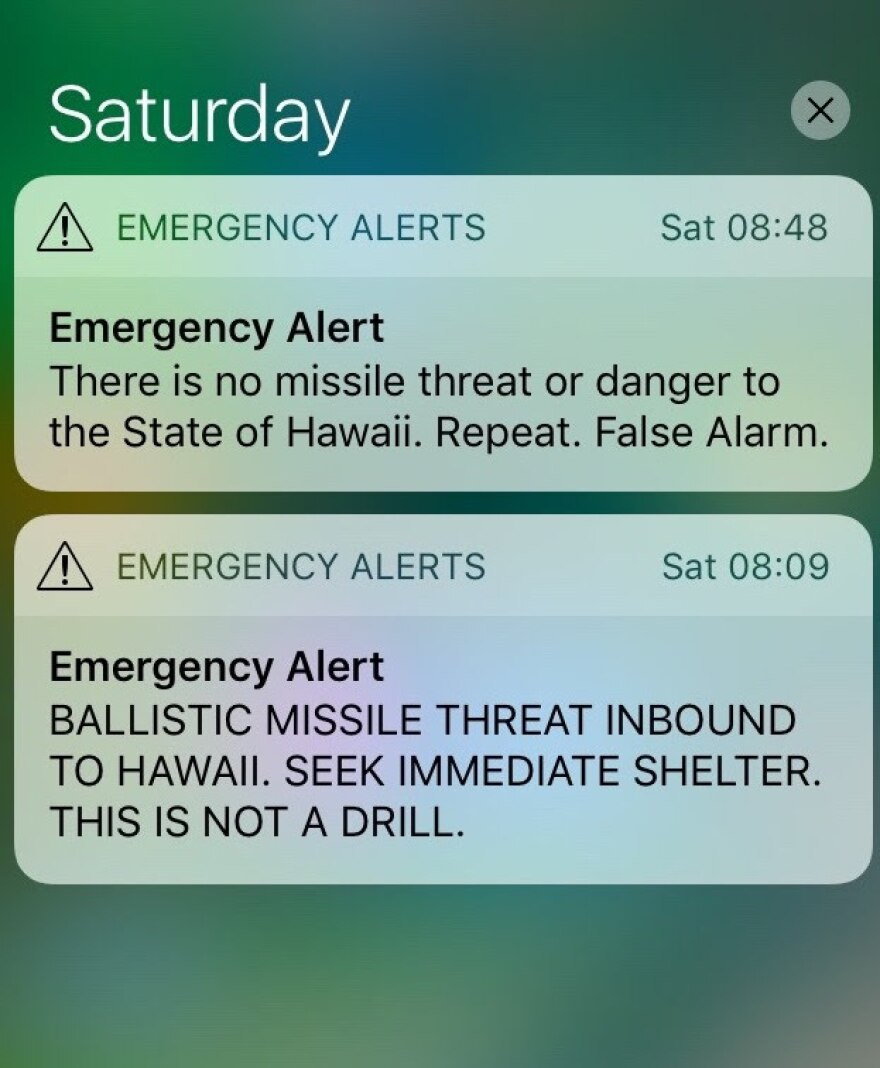A majority of Hawai?i residents did not panic during the false missile alert, but instead wanted more information. That's according to a study from the University of Georgia, analyzing how residents reacted to the false alarm.
Researchers asked residents questions about their perceived level of risk, the actions they took after the warning, and whether it will affect their trust in future alerts.
A majority of those surveyed said they sought information on social media or checked with family and friends to verify the alert. This behavior is known as "social milling."
"It's getting a sense of what other people are doing," said Sarah DeYoung, an assistant professor for the University of Georgia's Institute for Disaster Management. "Social milling means, let's see what's going on, observing the scene, but also checking in with others."
"So this social milling and sense making was actually a delayed, but calm response," said DeYoung, the study's author. "There were some media reports that the headlines said 'Chaos and Panic in Hawai?i.' And what we know based on almost 60 years of social disaster research is that people don't typically panic in disasters. People actually engage in pro-social behaviors and sense-making. So evaluating the next proper step to take in these events."
Researchers also found that social media played a key role in spreading the word about the false alarm. The study found that 16% of respondents said they saw and shared Congresswoman Tulsi Gabbard's tweet.
"There was a spillover effect of social media that went beyond people who follow it," said DeYoung. "And it also speaks to the value of following social media because those people who did were able to deliver that message to their immediate network of people."
The study also highlighted how residents felt during, and in the days after the false alert. Those surveyed reported feeling a mix of emotions. Among feelings of trauma and anger, some said they didn't trust their local government to handle future emergencies.
Despite this, a majority of study participants said they are more likely to trust future tsunami warnings than future missile alerts.




